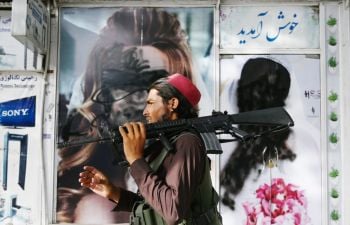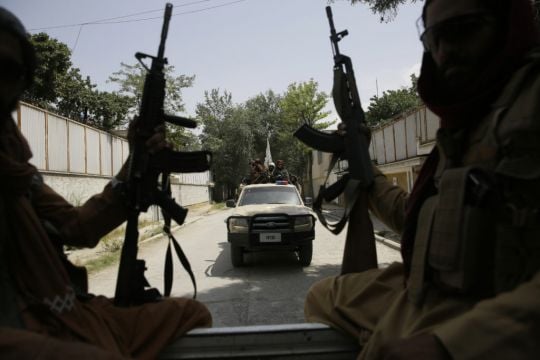Taliban co-founder Mullah Baradar has arrived in Kabul for talks with other leaders to hammer out a new Afghan government, a Taliban official said on Saturday, almost a week after the Islamist militants took over the capital without resistance.
The Taliban completed their sudden advance across the country as US-led forces pulled out, coinciding with what German Chancellor Angela Merkel on Saturday said was the "breathtaking collapse" of the Afghan army.
Since then, thousands have thronged Kabul airport, with security worsening by the day, as Western nations struggle to ramp up the pace of evacuations of its citizens and vulnerable Afghans amid the chaos and reports of Taliban violence.
The Taliban official said that the group planned to ready a new model for governing Afghanistan within the next few weeks, with separate teams to tackle internal security and financial issues.
"Experts from the former government will be brought in for crisis management," he told Reuters.
Not a democracy
The new government structure would not be a democracy by Western definitions, but "it will protect everyone's rights", the official added.
The Taliban, who follow an ultra-hardline version of Sunni Islam, have presented a more moderate face since returning to power, saying they want peace, will not take revenge against old enemies and will respect the rights of women within the framework of Islamic law.
When in power from 1996-2001, they stopped women from working or going out without wearing an all-enveloping burqa and stopped children from going to school.
Baradar will meet militant commanders, former government leaders and policymakers, as well as religious scholars among others, the official said without elaborating.
About 12,000 foreigners and Afghans working for embassies and international aid groups have been evacuated from Kabul airport since Taliban insurgents entered the capital, a NATO official said.
"The evacuation process is slow, as it is risky, for we don't want any form of clashes with Taliban members or civilians outside the airport," the NATO official told Reuters on condition of anonymity.
"We don't want to start a blame game regarding the evacuation plan."
Violent confrontations
Switzerland postponed a charter flight to Uzbekistan aimed at helping the evacuation effort, its foreign ministry said on Saturday.
"The security situation around Kabul airport has worsened significantly in the last hours. A large number of people in front of the airport and sometimes violent confrontations are hindering access to the airport," the Swiss Federal Department of Foreign Affairs (FDFA) said in a statement.
Individual Afghans and international aid and advocacy groups have reported harsh retaliation against protests, and roundups of those who had formerly held government positions, criticised the Taliban or worked with Americans.
"We have heard of some cases of atrocities and crimes against civilians," said the Taliban official on condition of anonymity.
"If (members of the Taliban) are doing these law and order problems, they will be investigated," he said. "We can understand the panic, stress and anxiety. People think we will not be accountable, but that will not be the case."
Hiding
Former officials told harrowing tales of hiding from the Taliban in recent days as gunmen went from door to door. One family of 16 described running to the bathroom, lights off and children's mouths covered, in fear for their lives.
Concerns were also growing among Kabul residents about the deterioration of the economy and security as banks were shuttered, food prices rose and those who had worked for the government lost their salaries.
"My elderly mother is sick, she needs medicine and my children and family need food, God help us," said a former government employee.
Baradar, the chief of the Taliban's political office, was part of the group's negotiating team in the Qatar capital of Doha.
Reported to have been one of the most trusted commanders of the former Taliban supreme leader Mullah Omar, Baradar was captured in 2010 by security forces in Pakistan's southern city of Karachi and released in 2018.
Disparate groups

The delay in forming a new Afghan government or even announcing who will lead a new Taliban administration underlines how unprepared the movement was for the sudden collapse of resistance by the Western-trained forces it had been fighting for years.
The Taliban, whose overall leader, Mullah Haibatullah Akhundzada, has so far been silent publicly, must also unite disparate groups within the movement whose interests may not always coincide now that victory has been achieved.
The chaos at Kabul airport, besieged by thousands of people desperate to flee the country, was not the responsibility of the Taliban, the official of the militant group said. "The West could have had a better plan to evacuate."
Gun-toting Taliban members around the airport have urged those without travel documents to go home. At least 12 people have been killed in and around the airport since Sunday, NATO and Taliban officials said.







